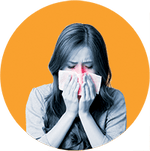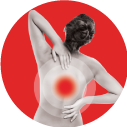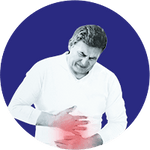
What is Malaria? Symptoms of Malaria, Causes and Treatment
Malaria came into being perhaps since the evolution of mankind. Age-old and life-threatening, it has plagued civilisations for centuries and continues to do so to date. Treatment for Malaria and malaria-eradication programmes have been at the vanguard of most healthcare schemes in most countries, and even now, some 200 million malaria cases are reported globally. A significant number die.
This scourge, where humidity and ambient temperatures rule, becomes more virulent in Africa, South Asia and the Middle East. Regardless, even the USA and Europe have not been spared, making this parasite-driven illness global. Below we have discussed a few of the signs and symptoms of malaria.
Causes of Malaria Disease
Malaria is caused by a parasite which invades a certain kind of mosquito, which in turn bites humans. This certain kind of mosquito is the female Anopheles, which transmits malaria and the resultant illness. Therefore, with the advent of numerous mosquito and vector-borne illnesses, a mosquito bite, by force of events, assumes potential significance, urging caution, immediate treatment and prevention of malaria by consulting a doctor.
Types of Malaria and its Symptoms
The type of malaria disease has been categorized as uncomplicated or severe. Yet the symptoms generally overlap each other. These include a sensation of cold with shivering, fever, headaches, and sweats where temperatures tend to rise and fall. Impaired consciousness, convulsions, deep, heavy breathing or abnormal bleeding take this to the next level, typified as serious.
What Happens in Malaria?
The parasite-infected mosquito attacks the liver and destroys red blood cells. It is known to lie dormant for 10-15 days, whereafter it overwhelms the human body to cause damage. The saliva of the mosquito messes with the immune system.
What Should be Done and the Good News!
Cover yourself to the extent possible by wearing a long sleeve shirt and shoes with socks. Recently, some progressive research has resulted in the creation of chemically-induced bed nets. The good-old mosquito nets still provide safety and are considered the best malaria home treatments.
Ivermectin, an oral drug, has been developed for the common symptoms of malaria through intense research. It has a major effect on mosquito mortality as it paralyzes the parasite and prevents it from producing additional larvae. However, the side effects of this drug need to be watched and monitored carefully.
Artemisinin-based Combination Therapy (ACT) is another WHO-approved method for treating uncomplicated malaria. A partner drug with ACT is considered an imperative.
Malaria symptoms and treatments can only be treated effectively with Natural remedies. If you regularly complain of a cough, cold or a sore throat- PhytoRelief-CC, made from natural active ingredients of turmeric, ginger, and pomegranate, help provide relief from cough, common cold, sore throat and throat pain. It has antioxidant, anti-inflammatory and anti-microbial properties and also helps to boost the immune system.
The article is based on the information available in public and which the author believes to be true. The author is not disseminating any information, which the author believes or knows, is confidential or in conflict with the privacy of any person. The views expressed or information supplied through this article is mere opinion and observation of the author. The author does not intend to defame, insult or, cause loss or damage to anyone, in any manner, through this article.




































